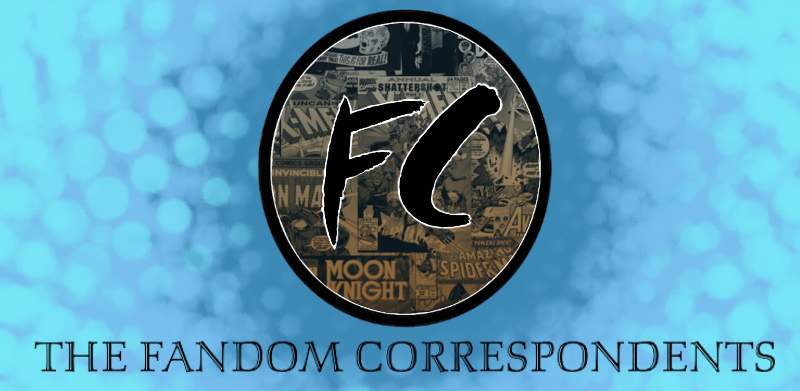I went through a lot of different ideas for my end of the year/decade article. This decade has been interesting to say the least, and there’s a ton of different directions I could take a “2010s in review” piece. But I believe something that sticks out to me the most about this least year, 2019, is how many times we saw things end. Things that had carried us through most of this decade found their endings in 2019, and we as fans and as people have had to face that. What kind of things am I talking about? Well, a lot, but I’ve chosen 5 things to focus on in particular.
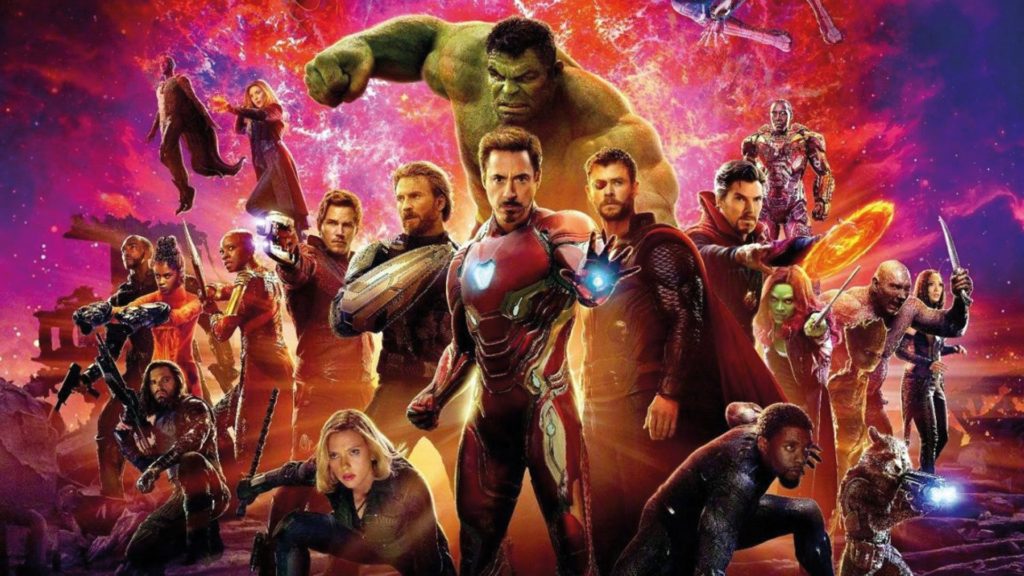
- The Thanos-Infinity Saga of the MCU
Ask anyone about what the defining media trends and events were over the last ten years, and most people would (sometimes begrudgingly, Mr. Scorcese) have to say the Marvel Cinematic Universe. Beginning in 2008 with the first Iron Man, the MCU utilized the 2010s to tell a story that spanned 11 years, three different cinematic phases, and 23 movies including the most recent Spider-Man story. This journey took us through one of the most hype events of 2012 with The Avengers, some of the most heartbreaking moments with beloved characters, and a single immersive world that we have (almost) all come to love. However, with Endgame earlier this year, we saw the Infinity Gauntlet Saga come to an end, and with it, some of our favorite Avengers. Spider-Man: Far From Home left us in a place of uncertainty to close out the third phase of Marvel films, and the schedule of films and TV projects coming up has made more than a few fans scratch their heads at just what Marvel and Disney are planning for the future.
What We’ve Learned . . .
We’ve learned a lot over the last 11 years from the MCU. We’ve learned that you can never count terrific actors out of the game, as we have seen with RDJ’s career resurrection through Tony Stark. We’ve learned that just about any property can be successful, as we have seen with the massive success of The Guardians of the Galaxy films. We have also learned that though it may take forever, what fans want does matter to Marvel, as we’ve seen with more female-led and minority roles like Captain Marvel, Black Panther, Black Widow, Valkyrie, Gamora, and future projects like Blade and Shang-Chi. The MCU has irreversibly changed cinema, and while the blockbusters have their critics, no one can deny that the stories they have told have shaped much of this decade’s entertainment and, for fans, much of our passions.
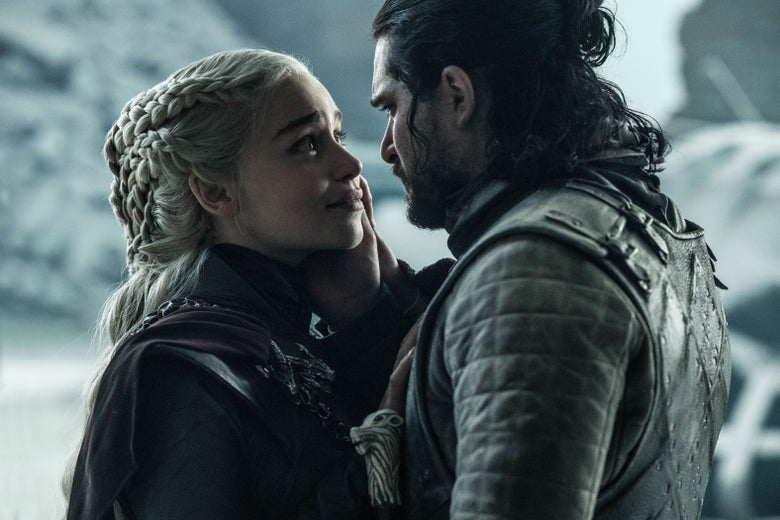
- Game of Thrones
If there has been a media event this decade to challenge the influence of the MCU, it would have to be Game of Thrones. The HBO adaptation of George R. R. Martin’s hit book series was all many people could talk about throughout the decade. Frequent character deaths, political intrigue, and dynamic writing made the show a must-watch for self-proclaimed fantasy nerds and casual TV viewers alike. That huge television event came to an end this year, and while the final season left a lot of people with . . . um . . . less than favorable feelings for the show and its creators, Game of Thrones was undeniably a massive phenomenon for the decade.
I’m not sure I have ever seen a fanbase go from wild enthusiasm to vitriolic hatred for something as quickly as Game of Thrones fans this year. While many viewers acknowledged that the show had lost some of its quality over the penultimate season 7 (ran out of manuscripts from George, being the popular theory), hype was still palpable leading up to this year’s season 8. David Benioff and D.B. Weiss (or D&D as they would come to be called), the show’s creators and the primary writers for season 8, promised an ending that would meet fans’ wild expectations. And let’s be honest, the first couple of episodes (ones that were not directed by D&D, coincidentally) were great! Characters were strong, writing felt good, and one could feel the build-up with each scene. Then the Battle of Winterfell happened, and fans began questioning the showrunners’ decisions. Then episode 4 came, an episode that I personally believe is the worst episode of a good TV show I have ever seen, and the internet unleashed its fury. Forums burned, interviews with actors showing their reluctance to endorse the final season surfaced, and D&D started to see the walls closing in. By the end of the show, pretty much no one was happy, and the showrunners made matters worse by avoiding several conventions and fandom events in order to skip fan backlash before moving on their next project, a Star Wars movie, which we all know is the least toxic of all fandoms, right? But public opinion won out eventually, and D&D began to lose their Netflix and Disney deals due to falling out of favor with the general public.
What We’ve Learned . . .
If we’ve learned anything, it’s that sometimes we shouldn’t give our everything to media projects and TV shows. Game of Thrones is, for 90% of its content, one of the best shows of all time, but its ending this year left people in palpable rage and poor mental health after feeling invested for so long. GoT did a ton of great things for media: it made fantasy popular again, it introduced a ton of terrific actors, it gave people something to bond over for years, and we got to see tight CGI dragons! People mess up, and sometimes things don’t turn out the way they should. And with GRRM undergoing the biggest and longest case of senioritis ever documented, GoT fans may have to come to terms with the possibility that we may never receive the conclusion we feel we deserve. But hey, at least we prequel series to look forward to, right guys? Uh, guys??
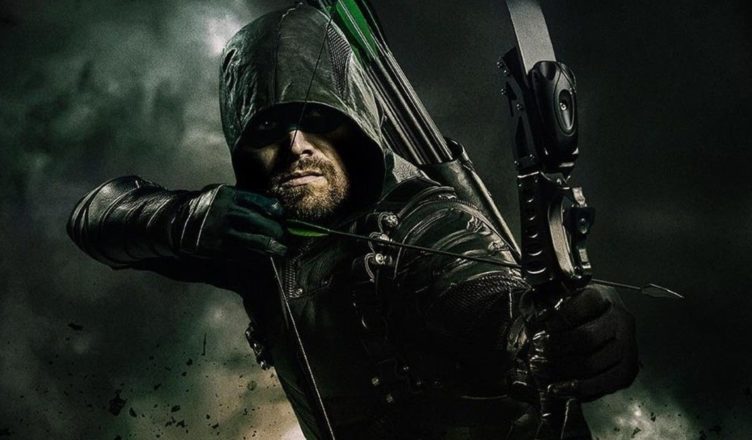
- Arrow
While Arrow will not have its final episode aired until early 2020, this year was the beginning of the end for a show that has earned quite an interesting place in live-action comic book history. While I haven’t watched Arrow since season 3, it’s hard to argue against its relevance over the last decade. It took a relatively unknown comic book character, gave him a TV show on a network known for young adult dramas like Gossip Girl, and marketed it as a Batman-esque story to drum up viewership. And, surprisingly enough, it worked. Arrow has consistently been one of the most popular shows on the CW despite its inconsistent quality, and even more impressively, it was the starting point for a massive DC TV universe. Arrow did with network TV what Marvel did with films (and WB DC failed to do with their own movies): within just a few years after the beginning of Arrow, the CW had developed shows for The Flash and the incredibly ambitious Legends of Tomorrow, and now we have seen a massive DCTV universe blossom with shows like Supergirl, Black Lightning, and Batwoman. This final season of Arrow features a massive 5-episode crossover event called Crisis on Infinite Earths that includes all current DC network shows, popular voice actors and former TV stars of superhero shows, and many other resources the likes of which would not have been thought possible when Arrow first came out. Despite the show’s inconsistency and downturn in quality over the years, it may be the most successful comic book TV show for the longest amount of time.
What We’ve Learned . . .
Whenever I talk about the things that Arrow has accomplished, I can’t help but compare it to another contender for this list, Marvel’s Netflix shows. While the quality of the Netflix shows’ production, acting, writing, and overall storytelling is leaps and bounds better than that of the CW-verse, I can’t help but notice how the latter highlights the opportunities that the former missed. Arrow and its spin-offs united across networks to create huge events that brought all the characters together; and while the Marvel shows had the Defenders series (sorely lacking Punisher, btw), they had an even bigger opportunity to do something special with the MCU. Arrow took off as a show before WB ever knew what they wanted to do with their cinematic universe, and there was controversy when WB executives refused to even consider including CW-verse actors or storylines. But with the quality of the Netflix shows and the fanbase surrounding characters like Daredevil, Luke Cage, and the Punisher, the shows felt oddly detached from the greater universe they were supposedly a part of. With the unceremonious ending of the Netflix shows this year, it has also become clear that the CW executives and showrunners, as questionable as their decision-making may be, cared more about the continuity and longevity of their shows than Netflix ever did about theirs. It’s incredible what an attractive man with a salmon ladder routine can do for a network.
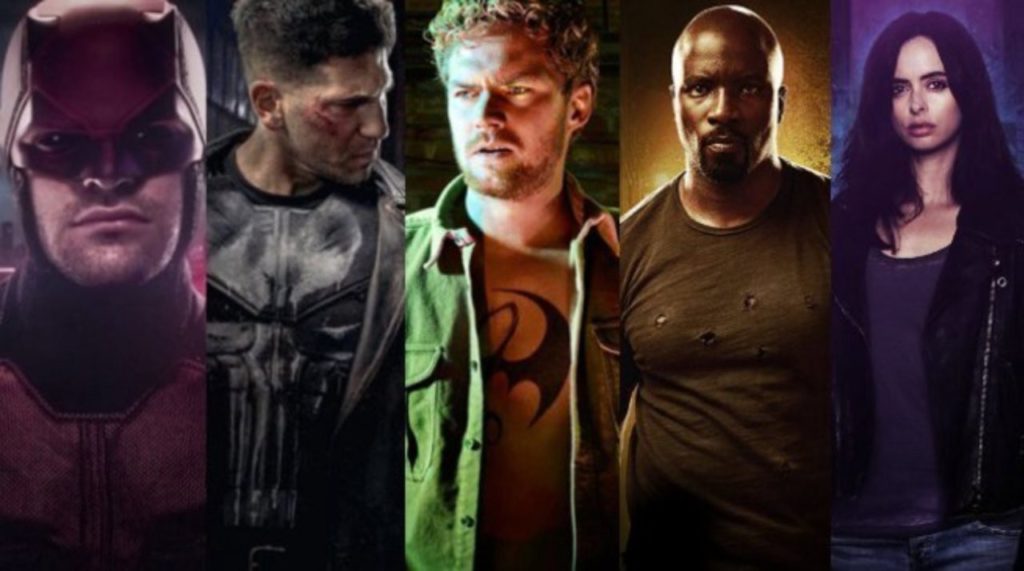
- Netflix-Marvel Shows
This one is a sore spot for me, so I’ll try my best to write as objectively as I can. In 2015, Netflix premiered a new Marvel show about fan favorite character Daredevil. It was a massive success–easily the best modern superhero TV show we had ever seen–and more shows followed. Over the years, we got stories about other less-prominent but still beloved characters like Luke Cage, Jessica Jones, the Punisher, and Iron Fist. The shows established an immersive street-level section of the Marvel Universe, and while there were some low points (that fans have collectively taken to calling “Iron Fist Season 1”), the shows offered concise, high-quality adventures for comic book fans and TV lovers alike. They featured some of the best character adaptations ever seen, such as Charlie Cox as Daredevil, Vincent D’Onofrio as Kingpin, Kristen Ritter as Jessica Jones, and Jon Bernthal as the Punisher. Then, in 2019, Netflix told their fans and subscribers to collectively screw themselves because they were done with these properties.
Dang it. Well, I tried to be objective.
Look, there was probably a ton of behind-the-scenes, legal and economic business that I am not privvy to that caused that decision to be made. But honestly, that doesn’t take the sting out of losing such terrific shows and characters. Bernthal’s depiction of the Punisher in Season 2 of Daredevil is my favorite portrayal of the character ever, and as a huge Punisher fan, that is saying something. There are talks of some of the Netflix actors reprising their roles in future Marvel projects, and while that would be great, fans like me won’t forget how betrayed and blindsided we felt when some of our favorite shows got canceled. And Netflix probably won’t forget either, considering all the subscribers they’ve been bleeding since the cancellations happened.
What We’ve Learned . . .
I haven’t learned anything. Everything sucks. Screw this.
Ok, fine. The success of the Netflix shows taught us several things. 1) Audiences love street-level superheroes and their stories. Even though the Netflix-verse felt very separated from the MCU that it was supposed to be a part of, the world they created for themselves in New York was often just as immersive as the galaxy-wide adventures that the Avengers had. Kingpin and Kilgrave made for easily-hateable villains, and even some of the more mystical stuff in Iron Fist eventually found its pace and its audience. Spending more time with these characters than just a 2.5 hour movie every few years made us much more invested in their stories, which brings me to my next point: 2) Terrific comic book stories can be successfully told in TV’s long-form storytelling. Marvel took this fact to heart, and we’ll be starting the new decade with tons of Marvel shows on Disney+. The more time you spend with someone, the more you care about them; this is a basic principle in human psychology and it works just as well with storytelling. I hung with Matthew Murdock for every second of three seasons, and I struggle to think of singular movies even in the MCU that had that effect on me. Finally, 3) Marvel projects can be successful while still being dark. If you had told me in 2015 that I’d be getting two season of the Punisher and three seasons of Jessica Jones and had me guess which show would get darker, I would’ve guessed wrong. The Netflix shows handled some intense topics and themes, but they handled them respectfully and told amazing stories about them. I hope this opens the door in the future for more Marvel projects to embrace their potential for more serious tones when appropriate for the characters and the story.
We’ve reached the end of this piece, but first, here’s some honorable mentions that ended this year that meant a lot to me.
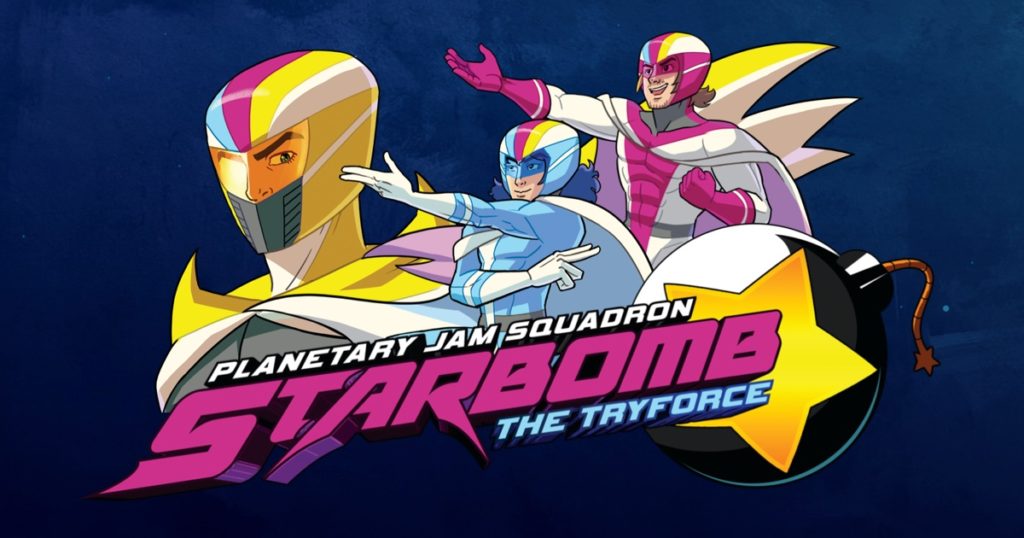
Video game parody group and internet superband Starbomb have completed the Triforce and released what will likely be their last album earlier this year. Titled “The Tryforce,” this album is album will likely be the last collaboration project from Ninja Sex Party’s Daniel “Sexbang” Avidan and Brian “Ninja Brian” Wecht and internet celebrity Arin “Egoraptor” Hanson, creator of the YouTube gaming channel The Game Grumps. Over the last 6 years, Starbomb have made three albums full of ridiculous and hilarious parody songs about video games, and while The Tryforce may be called their weakest offering by some critics, it still comes fully equipped with some great songs and topics such as a Pokemon song where Pikachu battles by playing tasty guitar solos, the simple plot of Kingdom Hearts, and This Song Sucks, a self-aware deconstruction of their music since the band’s conception. I love musical comedy, and seeing a group of friends be so successful over the years producing their own content while blending their passions of video games and comedy was kind of inspirational through all the silliness.
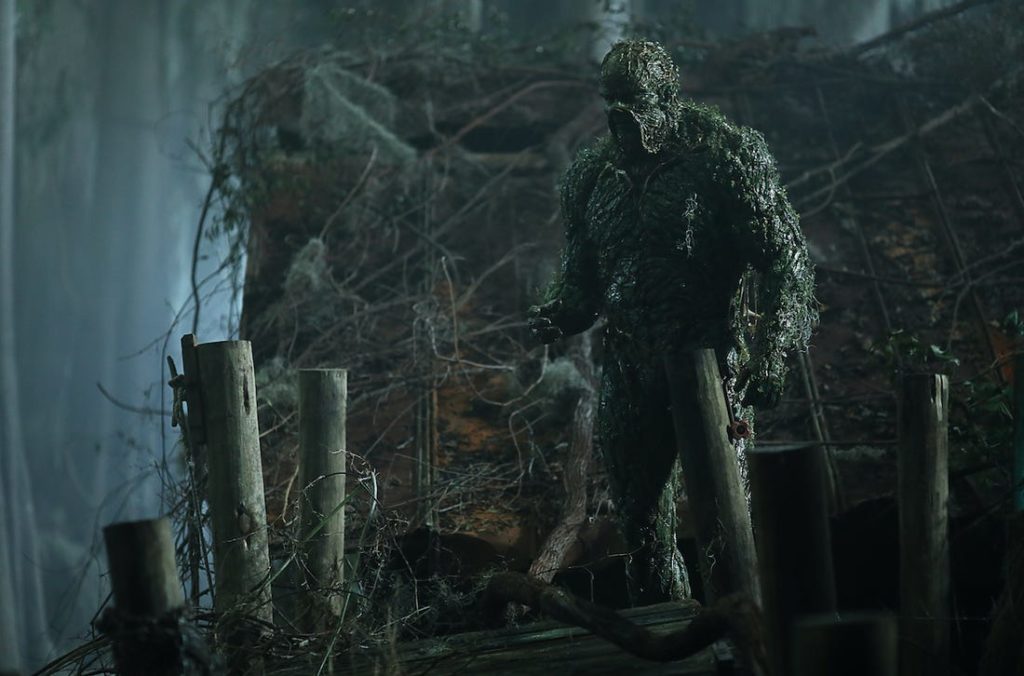
Sometimes, superhero shows don’t last as long as people would like them to, and this year, no better example of that exists than DC Universe’s Swamp Thing, a show that ran for about three months and whose cancellation was announced after the first two episodes. DC Universe has had quite an. . .hmm . . I’ll say “interesting” launch, and this quick cancellation speaks heavily to what I believe is their main problem: lack of foresight. I get that filming in a new location ended up costing more than they thought, but I can’t believe that they were so invested in a location that they sank literally everything they had to make a comeback or reset impossible. Just as PS4 and Switch owners have been left out to dry by the app’s apparent inability to plan ahead (the streaming service STILL isn’t available on those platforms after a full year and half), Swamp Thing was a promising show that got cut off before it even got a chance to let people know what it was about. RIP to yet another live action Justice League Dark project that got axed before its time.
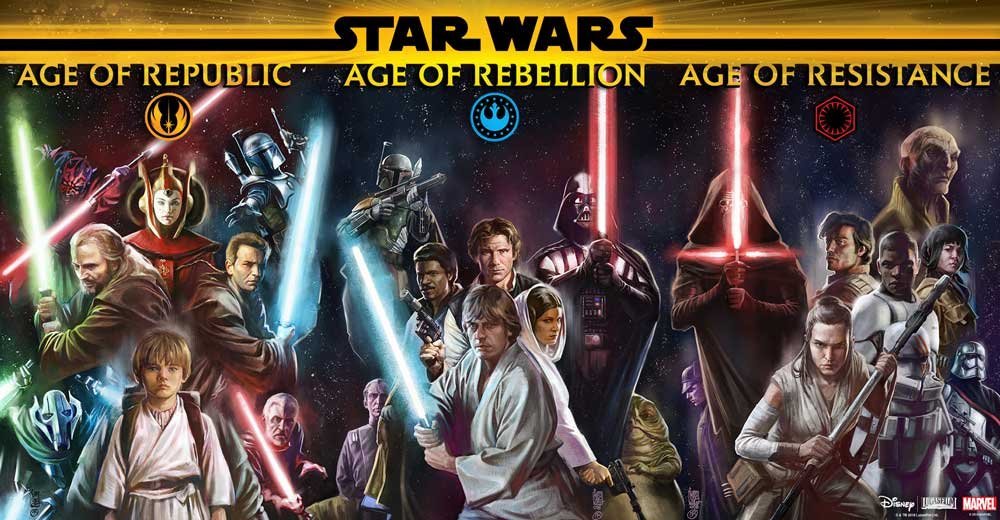
- The Star Wars Saga
This decade saw the return of Star Wars movies, and in this zany world we live in, they have been met with equal parts delight and vitriolic hate. There’s a lot I could say about the New Trilogy and spin-off films, but Vance is conducting a rather thorough review of each Star Wars movie this month, so I’ll just focus on the thing that really has defined the decade’s Star Wars business, and unfortunately so: fan reactions.
I am in the apparent minority about the New Trilogy: while there are parts of it that I think are somewhat problematic, I have thoroughly enjoyed both movies, and they have effectively reignited my love for Star Wars. They aren’t perfect, but they’re fun and tell an interesting story that deviates from the usual while still retaining traditional Star Wars themes. This is one of the places you will find this kind of opinion, because it is within the current zeitgeist to unabashedly hate Star Wars, hate the characters, hate Disney, and send death threats to actresses who have had the audacity to play a role in the new movies. Look, I get that the new films have problems, and they are definitely not for everybody. And while I love Star Wars, I am definitely not a person who has kept up with the history and lore of the universe as ardently as a lot of other people have. But I will say this: how much you love or hate something never gives you an excuse to mistreat real people. If this were a matter of internet forums talking about how much they disagree with the story, that is one thing. After all, people’s experiences with media, and the differences therein, are what makes it fun to be fans of things in the first place. And while I want to avoid grouping everyone who dislikes the new movies into a single group, a majority of the time I’ve seen the most severe criticism has been from people who espouse sexist and, at times, racist opinions about the characters. Obviously, this does not include everyone who dislikes the new trilogy, but it includes enough of the vocal fans that it makes me wonder if this is really about Star Wars at all.
What We’ve Learned . . .
The more I think about the new films, the more I’m convinced that the only way Star Wars fans would be happy with them is if they had been allowed to write them themselves. News has come out that they’re reasonably similar to what George Lucas had imagined for Star Wars sequels, so they can’t blame a lack of original vision. People complained that The Force Awakens was too similar to A New Hope and criticized it for not trying anything new, then The Last Jedi came out and everyone was in stitches over how it “disrespected” the old lore. A new campaign on Twitter has even started where “real Star Wars fans” can come together online to decide what Star Wars lore from the movies is really canon and what isn’t, based on majority opinion. Just imagine what we could’ve done for climate change if people cared about our universal impending doom as much as they cared about who Rey’s parents are. If I’ve learned anything from Star Wars this decade, it’s that sometimes it’s not worth it. When fans are harassing actors’ social media to the point of death threats and closing public profiles, maybe it’s not worth the extra content. I love the movies, but if I had known then what I know now about just how hateful and tantrum-filled people can be to the point of threatening violence over a movie they disagreed with, then I would’ve just said no. New Star Wars content isn’t worth it. Fan backlash has perpetually tainted my view of the Star Wars fandom to the point that I hesitate in social situations to say that I even like the media for fear of identifying with such a hateful group of people who can’t separate reality from fantasy (or in this case, science fiction). Everyone has a right to their opinion, and I’m not asking anyone to change their mind. I’m saying that when we care so much about media that we forget the real people behind it, and threaten the safety and security of human beings just because we don’t like a story direction, then maybe we don’t deserve to have that media in the first place.
In my opinion, however, Disney un-taught all of these lessons by giving into fans with Episode IX: Rise of Skywalker, one of the most fan servicey projects I have ever seen. I won’t get into spoilers since some of you may not have had the chance to watch it by now, but Episode IX was basically an “apology letter” to fans for TLJ even though there was nothing to apologize for. It was a movie, after all, not failing to pay livable wages to employees. Now, the most recent Star Wars saga has taught me that if you cry and piss your pants loud enough, you’ll get a studio to make a movie that disregards its predecessor and spews writing straight from the r/movies subreddit. There were parts I liked about Rise of Skywalker for sure, but it felt cheap to me. And, since everyone has been throwing this phrase around since 2015, I’m gonna use it myself: It didn’t feel like a Star Wars movie to me. But since I’m going to go on with my life and not harass actors off social media, my opinion doesn’t really matter.
In 2020, you need to do better and be better.
